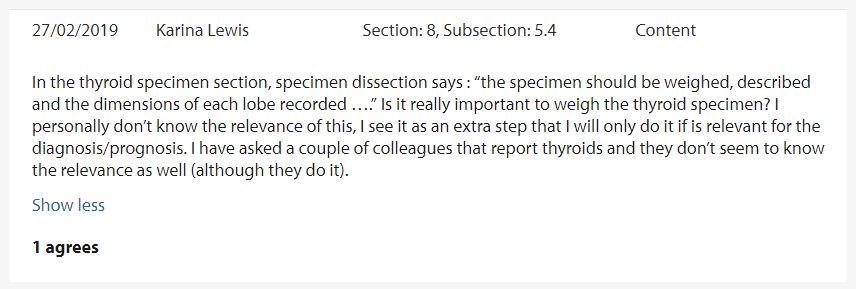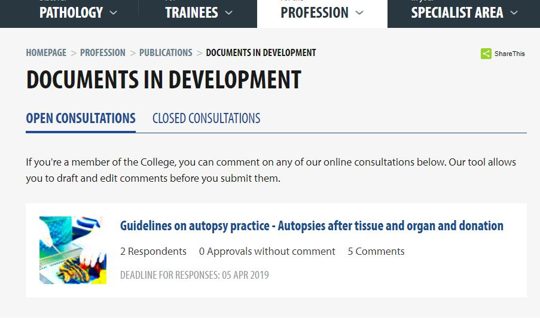Our new online 'Documents in Development' tool enables members and authors to engage in a dialogue around the development of key College publications, including guidelines, best practice recommendations and curricula. Members were involved at each stage of the tool's creation – from initial workshops through to final testing – and we're excited to unveil it to our broader membership today.
Visit the new tool (requires login)

How does it work?
The new tool is available to all members. Through it, you’re able to:
- upload your comments on a draft document, so other members can see them online
- 'agree' with comments other members have posted, to show your support for your colleagues
- anonymise your comments to other members if you wish
- draft, edit and delete your comments before publishing them, giving you full control over the feedback you provide
- see responses from authors, so you know if and how your feedback was incorporated into the final version of the document.
We have created a short video tutorial to help you familiarise yourself with how the tool works.
Designed with members in mind
As with other recent changes to the site – including our improved search, document library and the ability to request receipts online – members have been integral to this tool's development.
We are immensely thankful to those members of the Working Group for Cancer Services (WGCS) and the Digital User Group who gave up their time to attend workshops and testing sessions to make sure this tool worked for them. Dr Murali Varma from the WGCS, who has been instrumental in shaping the tool, said:
Easier for authors
Aside from transforming the process for gathering comments from members, this new tool also greatly improves the experience for authors.
Comments from members can now be viewed in sortable tables online or downloaded in spreadsheets. Authors are able to filter comments by their location in a document, when they were made, and whether they relate to content, spelling/grammar or references. When responding to members’ feedback, authors can respond to individual or multiple comments at the same time, and edit their responses quickly and easily.
Transitioning to the new system
From today, members will need to use the new tool to provide comments for newly opened consultations. Consultations closed before the 21 March 2019 can be found on a separate page and all consultations closed after this point will be found on the closed consultations tab of the new tool.
Creating this new tool has been an extremely rewarding project for the College and we hope our members and authors enjoy testing it out. If you have any feedback about how the tool works or experience any technical difficulties, please contact the College's digital team on [email protected].



